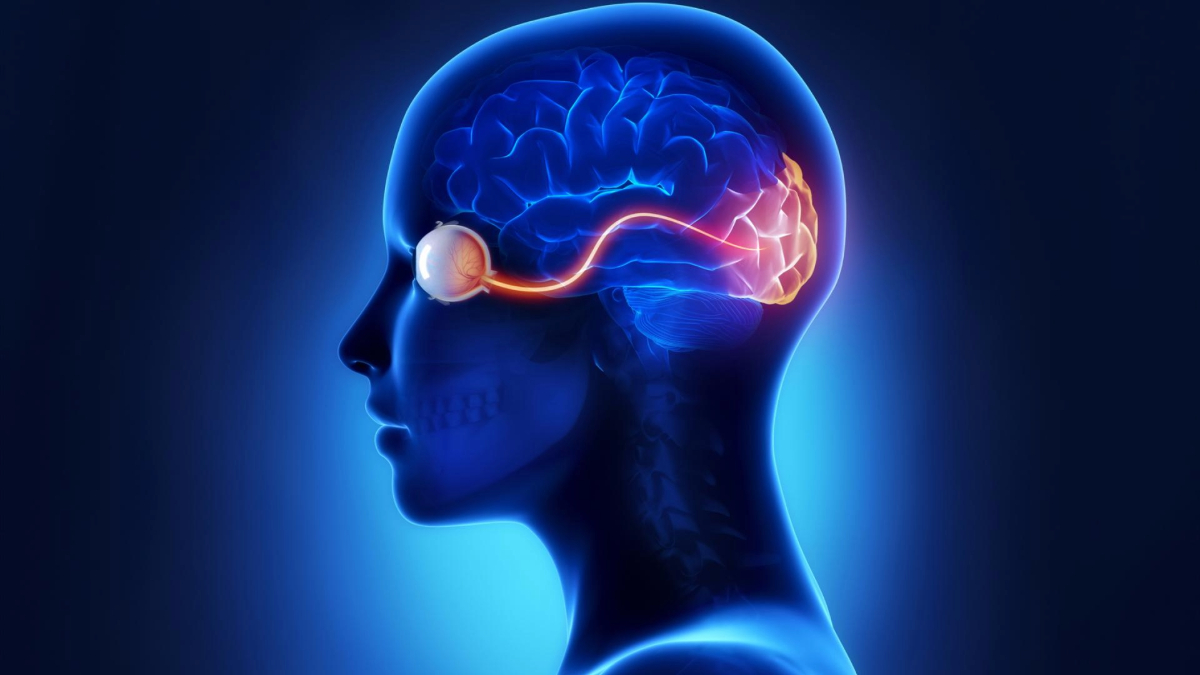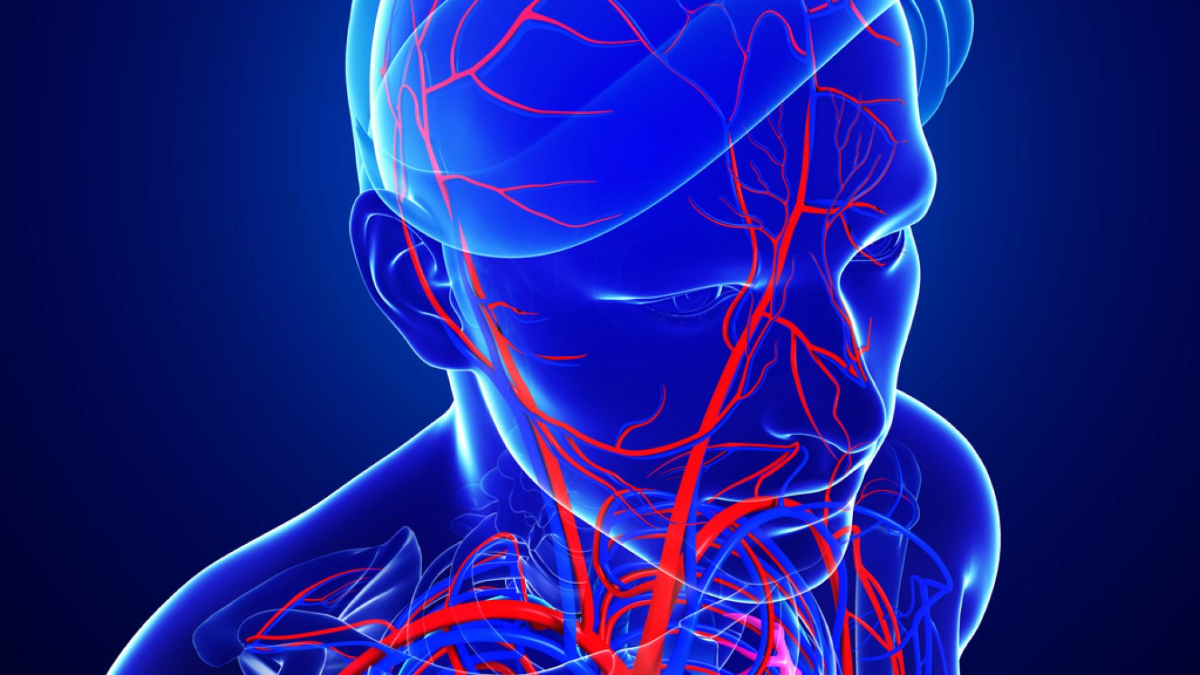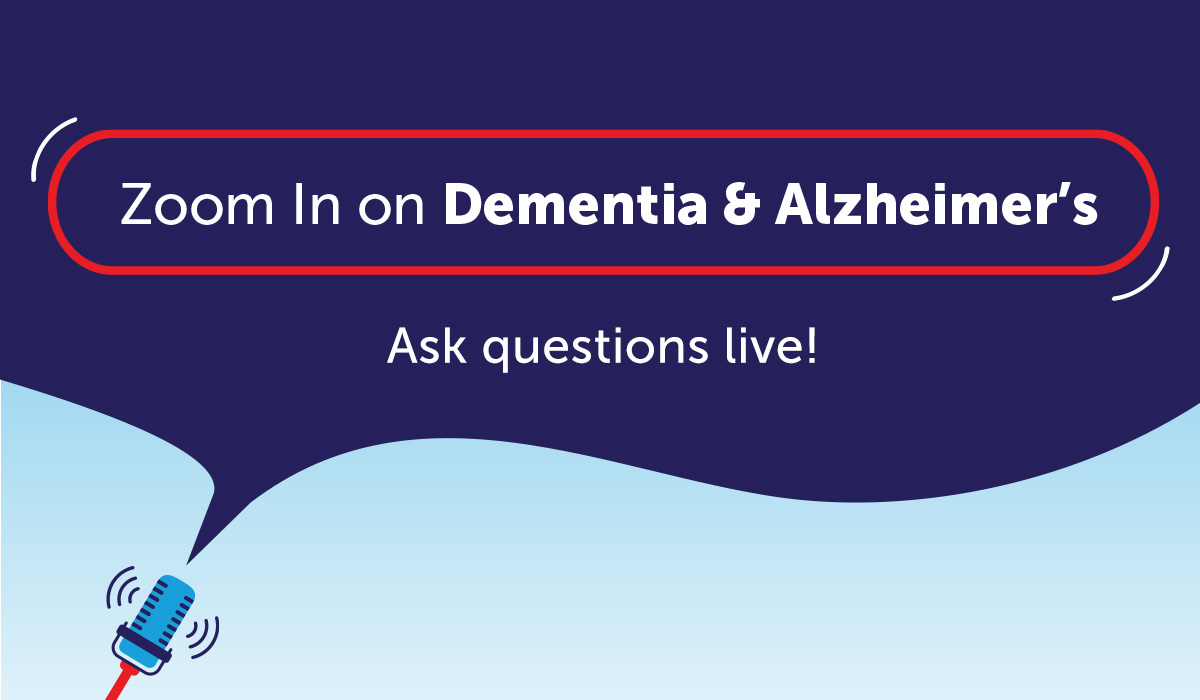Signs & Symptoms
Alzheimer’s disease attacks the mind, leading to memory loss, confusion, cognitive problems, and the inability to communicate or care for oneself. Continue reading for more information about the signs and symptoms.

What to Watch For
Many people experience mild forgetfulness or memory delays; it’s a normal part of the aging process. We all have occasional difficulty remembering a word or someone’s name. A person with Alzheimer’s or other types of dementia will find such symptoms becoming more and more frequent and severe.
Any of us could forget where we placed our car keys. Someone with Alzheimer’s disease may place the keys in an unusual spot, like the refrigerator. Or, he or she may not even remember the purpose of the keys.
Early Warning Signs of Alzheimer’s Disease
- Changes in personality
- Impaired walking or movement
- Language difficulties
- Low energy
- Memory loss
- Mood swings
- Problems with attention and orientation
- Problems with simple mathematical tasks
When to Seek Evaluation
In general, it may be time to seek an Alzheimer’s evaluation by a qualified physician if memory loss or other symptoms for you or a loved one:
- Increases in frequency or severity
- Interferes with daily activities (such as employment tasks or family chores)
- Makes an impression on friends and family
Get a Memory Screening
Memory screenings are a simple, non-invasive “check-up” for your memory and cognitive skills that represent an important step in the early detection of Alzheimer’s and other dementias. These screenings take just a few minutes and can help identify whether further medical evaluation might be beneficial. If you’re 65 or older, you can receive a memory screening as part of your annual wellness visit covered by Medicare.
Check out three of the most commonly used memory screenings below. If you’re concerned about memory loss or want to establish a cognitive health baseline, these tests are a great way to start. Ask your doctor which test is right for you.
Montreal Cognitive Assessment (MoCA)
A 15-minute test often used for detecting mild cognitive impairment. This exam is an updated version of the MMSE. Additional testing is needed to determine the cause of cognitive impairment, whether it is a type of dementia, a neurodegenerative disease like Huntington’s or Parkinson’s, or brain cancer.
Mini-Mental State Exam (MMSE)
A 10-minute test most commonly used to screen for dementia and track the progression of cognitive decline. It assesses language, memory, attention, and calculation through tasks like identifying objects, counting backwards, and stating the date. The MMSE also requires follow-up testing to determine the cause of cognitive impairment.
Mini-Cog
A simple 3-minute test designed to quickly screen for possible dementia. The exam requires the delayed recalling of three words and a clock drawing task. The Mini-Cog helps healthcare professionals determine if an individual may need more in-depth cognitive evaluation.
Clinical Dementia Rating (CDR-SB)
A 30-minute test that evaluates cognitive function and assesses the ability to perform everyday tasks. It involves interviews with both the individual and their care partner. When this test is performed in the pre-dementia stage, it can predict the likelihood of progressing to dementia or reversion to normal cognition.
In research settings, like clinical trials, you may hear of more memory tests such as the ADAS-Cog and PACC5. For more information on specific memory tests used in research and clinical trials, speak with your doctor or a research specialist.
Medications That Can Mimic Dementia
Some medications can interfere with cognition and mimic symptoms of dementia or Alzheimer’s. Often, it is difficult to disentangle the possible sources of cognitive changes in an older person taking multiple medications for medical conditions that, in their own right, can affect mental functioning.
If you believe that medications are causing memory loss or affecting other cognitive functions, discuss this with your healthcare providers.
Stages of Alzheimer’s Disease
Alzheimer’s disease usually progresses gradually, lasting an average of seven years in the U.S. Scientists now know that Alzheimer’s disease exists in a person’s body long before symptoms appear. Researchers call this the pre-clinical/pre-symptomatic stage. Once symptoms do appear, they increase in severity as a person with Alzheimer’s moves from the earliest to the final stages of the disease.
Mild Cognitive Impairment Due to Alzheimer’s
Individuals with mild cognitive impairment have memory problems but can perform routine activities. This condition often leads to Alzheimer’s, but not all patients will develop Alzheimer’s.
Mild (Stage 1)
Early in their illness, people with Alzheimer’s disease may be slow in their speech and understanding, experience minor memory loss and mood swings, and other possible symptoms.
Moderate (Stage 2)
At this stage, a person with Alzheimer’s begins to experience a greater impact on their daily life and independence.
Severe (Stage 3)
In this final stage, people with Alzheimer’s are unable to chew and swallow, become bedridden and vulnerable to pneumonia and other illnesses, among other symptoms.
Do you think you or a loved one might have Alzheimer's?
If you suspect that you or a loved one has a memory problem, seek advice and a thorough evaluation by a physician with extensive knowledge, experience, and interest in dementia and memory problems. It’s important to get early medical attention if you can.
A physician can rule out other possible causes of memory loss, including:
- Another progressive condition like Parkinson’s disease
- Drug interactions
- Head injury
- Infections
- Nutritional or metabolic disorders
Although there is currently no cure for Alzheimer’s, a doctor may prescribe certain medications to help slow the progression or alleviate some of the symptoms of the disease. Treatment is most effective in the earlier stages of Alzheimer’s disease, so early screening and diagnosis are important.
Search for an Alzheimer's Disease Clinical Trial
Clinical trials are crucial to advancing the most effective medical approaches. Today’s studies will lead to new standards of care in the future.

Working Together, We Can Stop Alzheimer’s
Alzheimer’s affects one in nine Americans over 65. Your support helps fund the most promising research to stop this mind-stealing disease and provide valuable information to the public.
Resources
Recent Resources & Information

Zoom In on Dementia & Alzheimer's
How Much Forgetfulness is Too Much?
Ronald C. Petersen, MD, PhD, discusses what we know about Alzheimer’s and how we can better understand what it is - and what it isn’t.

Downloadable Resource
Understanding Alzheimer’s Disease
Alzheimer’s disease affects people’s memories, but it involves far more than simple forgetfulness. Learn more about this devastating disease.

Expert Information
When Alzheimer’s Disease Begins with Vision Problems
Learn how vision problems can signal the onset of Alzheimer's through our in-depth exploration of Posterior Cortical Atrophy (PCA).

Expert Information
What Are the Stages of Frontotemporal Dementia?
Learn about the symptoms associated with the early, middle, and late stages of frontotemporal dementia.

Expert Information
Medical Conditions That Can Mimic Dementia
Discover the wide range of medical conditions that can mimic dementia, including delirium, infections, and hormonal disturbances. Learn how these conditions differ from dementia, their symptoms, and the importance of accurate diagnosis for effective treatment

Zoom In on Dementia & Alzheimer's
Bruce Willis Has Frontotemporal Dementia: What Are the Symptoms of FTD?
Learn about frontotemporal dementia (FTD), a form of dementia, and how it differs from Alzheimer’s disease.



